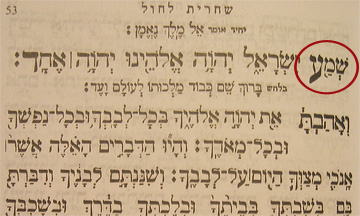In my last post I examined one of the very oldest bits of evidence for early Christian belief about Jesus. As you may recall, the original Greek text of 1 Corinthians 16:22 contains the Aramaic phrase, marana tha, which means, “Our Lord, come!” This shows that some of the very earliest Christians actually prayed to Jesus after his death and resurrection, even addressing him as “Lord,” a term used for God himself. So, though we can’t tell exactly what the first followers of Jesus believed about him, they surely held him to be much more than a man. In some way they related to Jesus as if he were God himself.
Another very early piece of early Christian belief confirms and expands upon this conclusion. In his letter to the Philippians, written during the mid- to late-50’s A.D., the Apostle Paul speaks of Christ in quite exalted language:
Let the same mind be in you that was in Christ Jesus,
who, though he was in the form of God,
did not regard equality with God
as something to be exploited,
but emptied himself,
taking the form of a slave,
being born in human likeness.
And being found in human form,
he humbled himself
and became obedient to the point of death–
even death on a cross.
Therefore God also highly exalted him
and gave him the name
that is above every name,
so that at the name of Jesus
every knee should bend,
in heaven and on earth and under the earth,
and every tongue should confess
that Jesus Christ is Lord,
to the glory of God the Father (Phil 2:5-11).
Notice that Christ, prior to becoming human, was in the form of God and possessed equality with God. Then, in light of his obedient death, God exalted him and gave him the very name of God so that all creation might bow before him and worship him as Lord. Clearly Jesus is no longer in the “merely human” category. (Photo: A statue of the reigning Christ from the cathedral in Monaco.)
At the latest, this passage was written about 25 years after the death of Jesus – a testimony to early Christian belief. Yet many respectable scholars believe that Paul did not actually compose this text, but borrowed it from an earlier piece of Christian liturgy. The peculiar linguistic form of this passage, combined with its use of language that is unusual for Paul, combined with its “confessional” quality, have persuaded many New Testament scholars that Paul employed a hymn that had been written earlier than Philippians. Just how much earlier we can’t tell. But, once again, we have in Paul’s letters, which are themselves the earliest Christian documents available to us, a piece of tradition which quite possibly goes back to an earlier stage of Christian history. Of course even if Paul composed the hymn in Philippians 2:5-11, it still counts as early Christian belief about Jesus.
This is all the more striking when you compare this text from Philippians with passages from the Old Testament book of Isaiah. In Philippians 2:9-11, God gave Jesus “the name that is above every name” so that every tongue might confess that “Jesus Christ is Lord.” Compare this with Isaiah 42:5-8:
Thus says God, the LORD,
who created the heavens and stretched them out,
who spread out the earth and what comes from it,
who gives breath to the people upon it
and spirit to those who walk in it:
I am the LORD, I have called you in righteousness,
I have taken you by the hand and kept you; . . .
I am the LORD, that is my name;
my glory I give to no other,
nor my praise to idols.
Yet in Philippians 2, the Lord shares his glory with Christ, even giving him the name of Lord.
Three chapters later, in Isaiah 45:21-23, we read this:
Declare and present your case;
let them take counsel together!
Who told this long ago?
Who declared it of old?
Was it not I, the LORD?
There is no other god besides me,
a righteous God and a Savior;
there is no one besides me.
Turn to me and be saved,
all the ends of the earth!
For I am God, and there is no other.
By myself I have sworn,
from my mouth has gone forth in righteousness
a word that shall not return:
“To me every knee shall bow,
every tongue shall swear.”
Yet Philippians 2, obviously echoing Isaiah 45, claims that every knee shall bow to Jesus, and every tongue will confess that he is Lord.
Notice, however, that Philippians 2 doesn’t confuse Jesus Christ with God, who in the later language of Christian theology, is identified as God the Father. The Father exalts the Son and is glorified when all creation confesses Jesus to be Lord. So, though we don’t have well-developed Trinitarian theology here, we certain have the seeds from which grew the Christian confession of one God in three persons.
Finally, we need to remember that the Apostle Paul was a faithful, monotheistic Jew. Part of what is so striking about the hymn in Philippians 2 is that it is quite intentionally an application of Isaiah to Jesus. Passages in Isaiah once reserved for God alone have been applied to Jesus, who receives the name of Lord and who shares in divine worship. The use of Isaiah here suggests that the recognition of Jesus as God happened among faithful, Scripture-honoring Jews who saw in Jesus an incarnation of their God.
Moreover, what is most stunning about Philippians 2:5-11 is that the death of Jesus, even a scandalous death on the cross, contributes to his being regarded as God, rather than taking away from it. The one who died so ignominiously is the one who receives the worship of all creation as if he were God, and this worship is somehow a result of his humiliating death. Now that’s a paradox well worth further consideration.
In my next post in this series I’ll begin to look at another theological insight that contributed to early Christian exaltation of Jesus as God.

